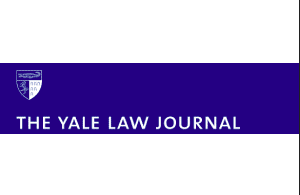Well worth a read – here is the abstract and introduction
ABSTRACT. Lawyer lies designed to sabotage valid election results are not protected political speech under the First Amendment. Ethics rules governing candor and frivolous litigation require sanctions, if not disbarment. Moreover, the duty of candor should be extended from the courthouse to the public square when lawyer lies threaten our democracy.
“Truthfulness has never been counted among the political virtues, and lies have always been regarded as justifiable tools in political dealings.”
—Hannah Arendt, Lying in Politics: Reflections on the Pentagon Papers1
INTRODUCTION
Lawyer lies pervade politics regardless of party, though to be sure, they became more noticeable in the Trump Era. In the aftermath of the 2020 election, lawyers desperate to alter the outcome of validly cast votes spewed outrageous lies. Their election fraud lies stand apart from those made by lawyers earlier in President Trump’s Administration because of the consequences at stake.2 Indeed, the harm of their lies cannot be overstated. Had their lies not been rejected by the courts, they would have undone the results of a legitimate election, compromising the very foundation of American democracy. More than sixty lawsuits were dismissed after judges appointed by both Democrats and Republicans (including President Trump) refused to entertain fraud allegations based on lies advanced by lawyers.3
And for good reason. Lawyer lies about the outcome of a valid election, whether told in chambers or in a press conference, risk causing unique, devasting harm to our democratic form of government and should not be tolerated by members of our profession. Indeed, philosopher Jeremy Waldron calls these types of lies “among the worst kinds of lie to tell. They are libels on democracy.”4 Perhaps most concerning, a lack of meaningful discipline for lawyers who tell election fraud lies risks a continued threat in future elections and undermines public confidence in the legal profession. Ethics rules can and should be guardrails to protect against future lawyer lies comprising valid election results.
This Essay contends that ethics rules governing candor in the courtroom and frivolous litigation require sanctions for lawyer lies designed to sabotage valid election results. Further, it makes the case for extending the duty of candor to the public square when those lies threaten extreme harm. Lies may be justifiable in political dealings and in the practice of law, but the legal profession should not tolerate them when pressed on behalf of government officials aiming to undo legitimate election results, whether in the courtroom or in the court of public opinion. While this Essay focuses on the lies told following the 2020 election, the analysis here similarly applies to past elections, and especially to future elections.
Part I of this Essay analyzes some of the more egregious lawyer lies in recent years and defines the very specific nature of the lies at the center of this Essay: election fraud lies. Part II argues that sanctions should be imposed for lawyers’ election fraud lies under existing ethics and civil procedure rules. Part III makes the case for extending the duty of candor beyond the courtroom and addresses relevant speech and enforcement concerns. Part IV concludes with recommendations for expanding a broader duty of candor as an aspirational commitment for lawyers and lawyers-to-be.
Read article
https://www.yalelawjournal.org/forum/lawyer-lies-and-political-speech




